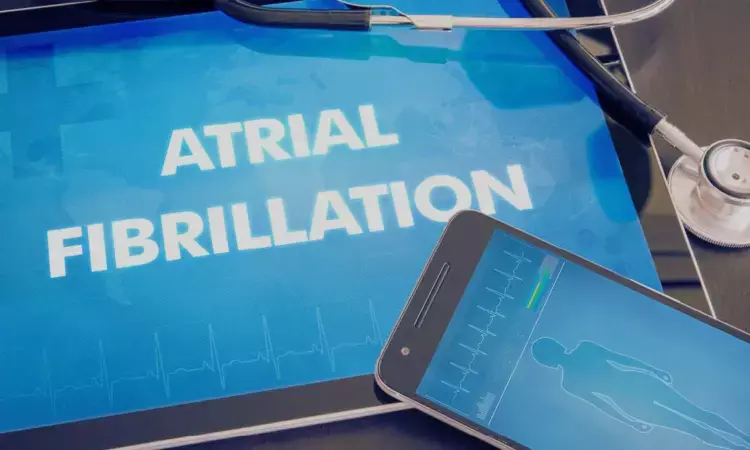- Home
- Medical news & Guidelines
- Anesthesiology
- Cardiology and CTVS
- Critical Care
- Dentistry
- Dermatology
- Diabetes and Endocrinology
- ENT
- Gastroenterology
- Medicine
- Nephrology
- Neurology
- Obstretics-Gynaecology
- Oncology
- Ophthalmology
- Orthopaedics
- Pediatrics-Neonatology
- Psychiatry
- Pulmonology
- Radiology
- Surgery
- Urology
- Laboratory Medicine
- Diet
- Nursing
- Paramedical
- Physiotherapy
- Health news
- Fact Check
- Bone Health Fact Check
- Brain Health Fact Check
- Cancer Related Fact Check
- Child Care Fact Check
- Dental and oral health fact check
- Diabetes and metabolic health fact check
- Diet and Nutrition Fact Check
- Eye and ENT Care Fact Check
- Fitness fact check
- Gut health fact check
- Heart health fact check
- Kidney health fact check
- Medical education fact check
- Men's health fact check
- Respiratory fact check
- Skin and hair care fact check
- Vaccine and Immunization fact check
- Women's health fact check
- AYUSH
- State News
- Andaman and Nicobar Islands
- Andhra Pradesh
- Arunachal Pradesh
- Assam
- Bihar
- Chandigarh
- Chattisgarh
- Dadra and Nagar Haveli
- Daman and Diu
- Delhi
- Goa
- Gujarat
- Haryana
- Himachal Pradesh
- Jammu & Kashmir
- Jharkhand
- Karnataka
- Kerala
- Ladakh
- Lakshadweep
- Madhya Pradesh
- Maharashtra
- Manipur
- Meghalaya
- Mizoram
- Nagaland
- Odisha
- Puducherry
- Punjab
- Rajasthan
- Sikkim
- Tamil Nadu
- Telangana
- Tripura
- Uttar Pradesh
- Uttrakhand
- West Bengal
- Medical Education
- Industry
ICM-detected AF not tied to recurrent ischemic stroke in already fairly anticoagulated population

Japan: The risk of stroke recurrence in patients with cryptogenic stroke with atrial fibrillation (AF) detected after stroke by the insertable cardiac monitor (ICM) was not higher than that in patients with cryptogenic stroke without AF detected after stroke by ICM, an observation study has revealed.
The findings published in the Journal of the American Heart Association suggested a similar risk of recurrent stroke in cryptogenic stroke survivors who went on to get an ICM whether or not any AF ever turned up on monitoring.
"Ischemic stroke recurred in a similar 4.0% of Japanese patients without atrial fibrillation detected and 5.8% of those who did have AF detected during nearly two years of monitoring after their index stroke (OR 1.47), the researchers reported.
Likewise, the stroke risk was not higher immediately after AF detection or within 90 days in a landmark analysis. An AF burden at or above the median of 0.1% (a low threshold) also did not appear to impact stroke recurrence rates, according to the CRYPTON-ICM registry.
Atrial fibrillation is reported to be a strong risk factor for stroke. However, there is a lack of information on the risk of stroke recurrence in patients with cryptogenic stroke with AF detected after stroke by an insertable cardiac monitor. Therefore, Kenichi Todo, Osaka University Graduate School of Medicine, Osaka, Japan, and colleagues sought to evaluate the risk of ischemic stroke recurrence in patients with cryptogenic stroke with and without ICM‐detected AF.
For this purpose, the research team retrospectively reviewed patients with cryptogenic stroke who underwent ICM implantation at eight stroke centres in Japan. Cox regression models were developed using time‐dependent analysis and landmark analysis. The target sample size was set at 300 patients based on the estimate of the annualized incidence of ischemic stroke recurrence to be 3% in patients without AF detection and 9% in patients with AF detection.
Based on the study, the following inferences were made:
· Of the 370 patients, 121 had atrial fibrillation, and 110 received anticoagulation therapy after AF detection.
· The incidence of ischemic stroke recurrence was 4.0% in 249 patients without AF detection and 5.8% in 121 patients with AF detection.
· In a landmark analysis, the risk of ischemic stroke recurrence was not higher in patients with AF detected ≤90 days than in those without (hazard ratio, 1.47).
· In a time‐dependent analysis, the risk of ischemic stroke recurrence did not increase after AF detection (hazard ratio, 1.77).
Despite the known high risk of stroke in patients with overt atrial fibrillation, the study showed that the risk of recurrent stroke in cryptogenic stroke with AF patients detected by ICM was not higher than that in patients with cryptogenic stroke without AF, possibly because of a relatively small burden of AF and appropriate initiation of anticoagulation therapy after AF detection with >90% anticoagulation rate.
"We confirmed that it is reasonable to switch from antiplatelet therapy to anticoagulation therapy after AF detection by ICM instead of empirically initiating anticoagulation therapy before AF detection in cryptogenic stroke," the researchers concluded.
Reference:
Todo K, et al "Atrial fibrillation detection and ischemic stroke recurrence in cryptogenic stroke: a retrospective, multicenter, observational study" J Am Heart Assoc 2024; DOI: 10.1161/JAHA.123.031508.
Dr Kamal Kant Kohli-MBBS, DTCD- a chest specialist with more than 30 years of practice and a flair for writing clinical articles, Dr Kamal Kant Kohli joined Medical Dialogues as a Chief Editor of Medical News. Besides writing articles, as an editor, he proofreads and verifies all the medical content published on Medical Dialogues including those coming from journals, studies,medical conferences,guidelines etc. Email: drkohli@medicaldialogues.in. Contact no. 011-43720751


